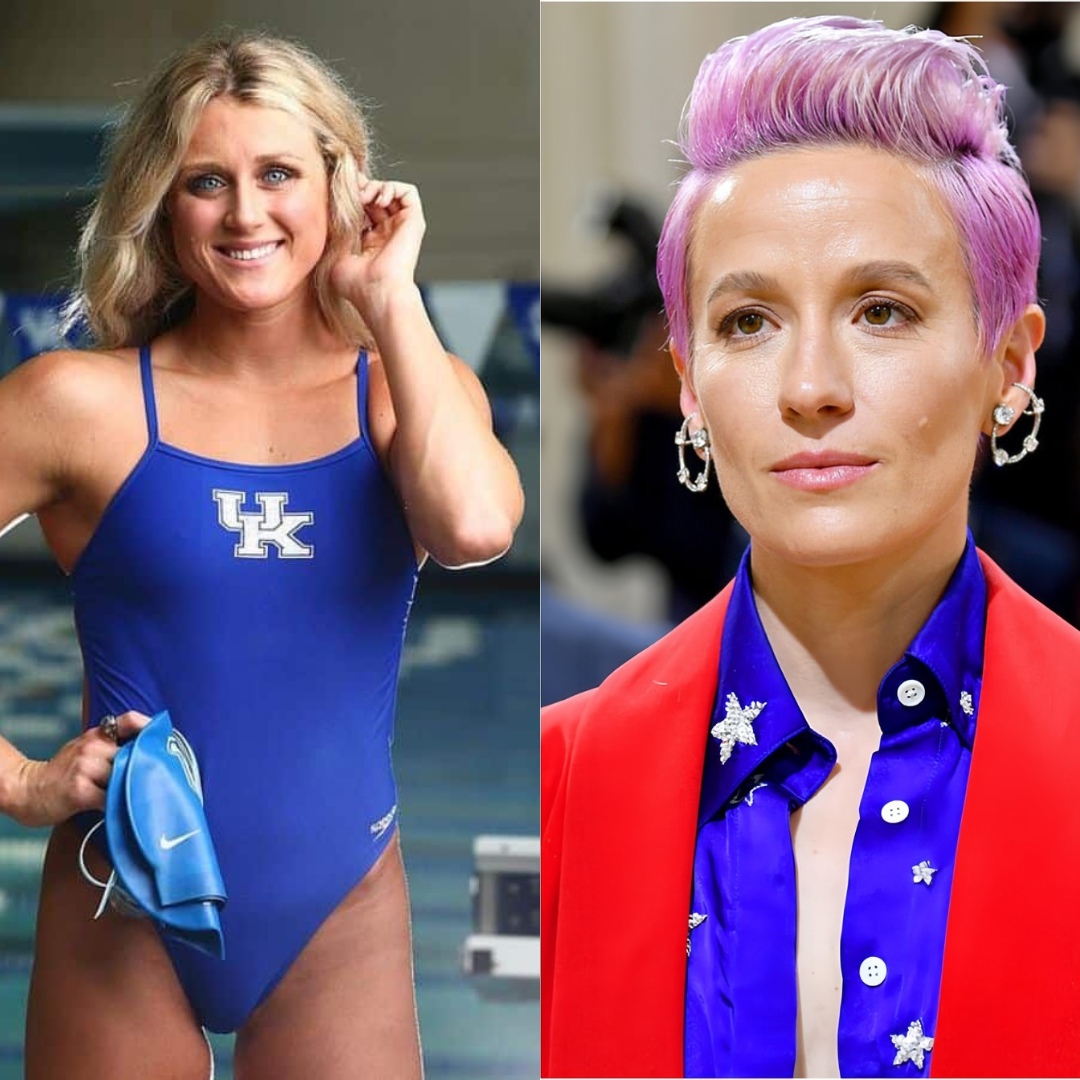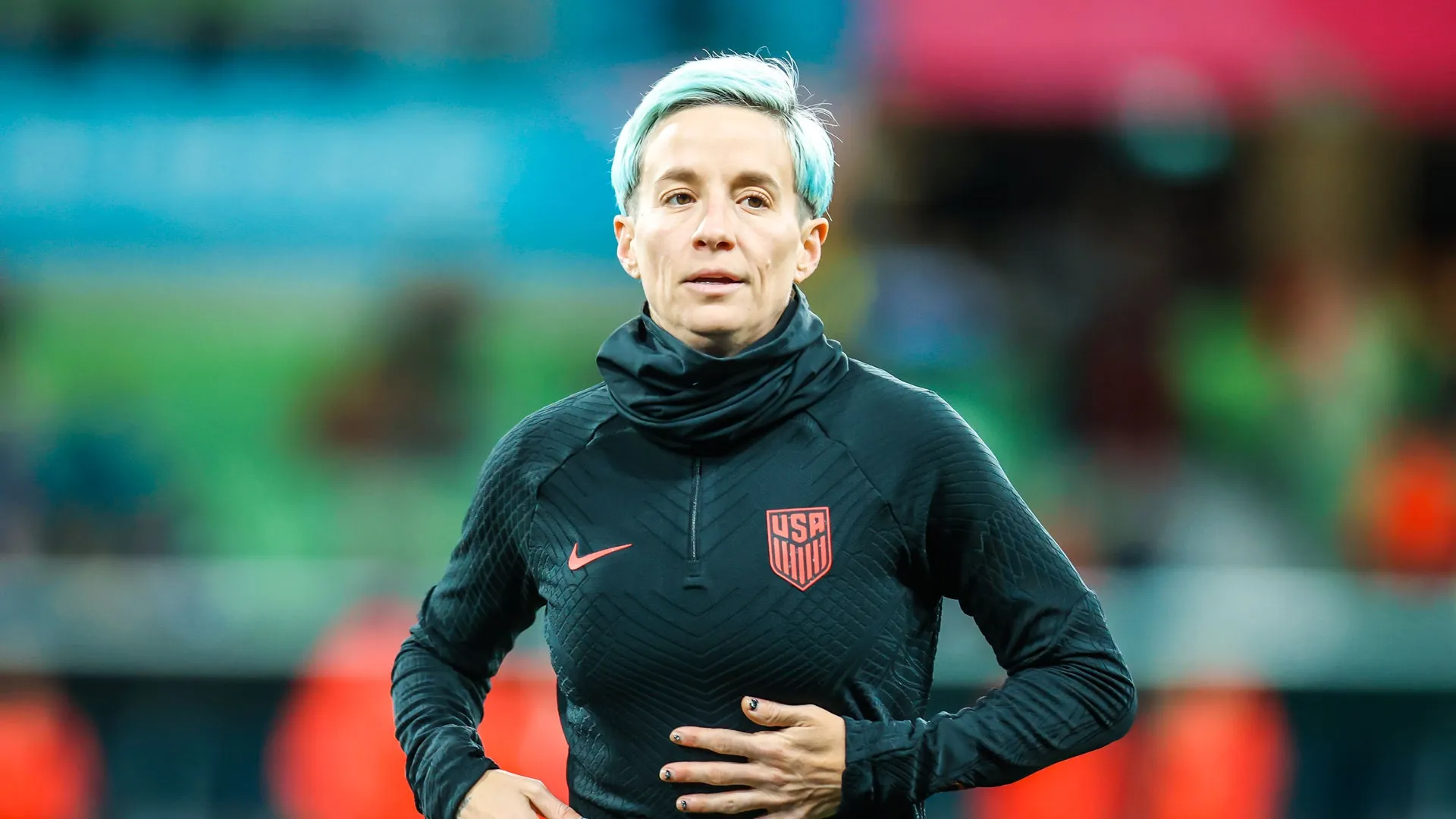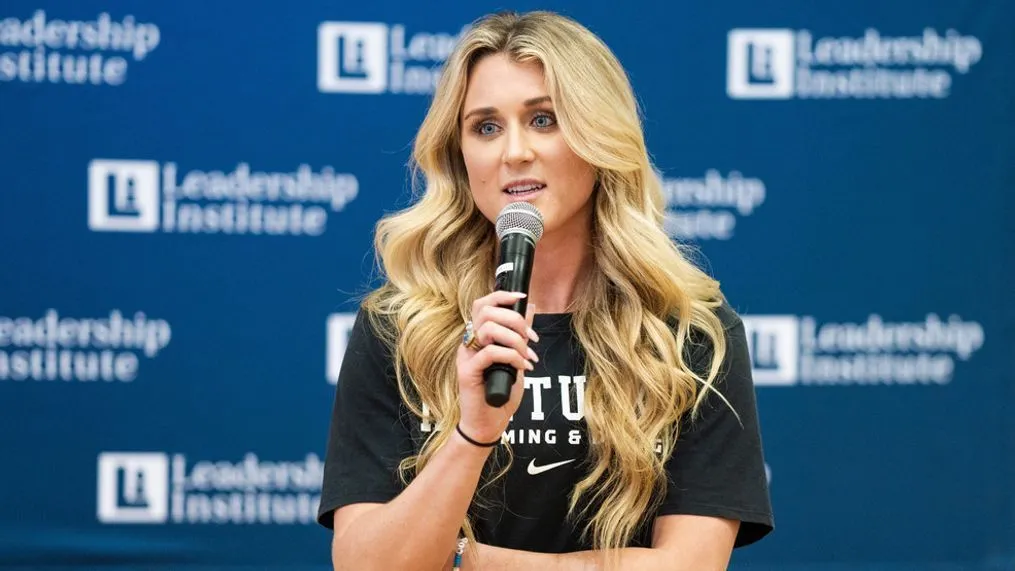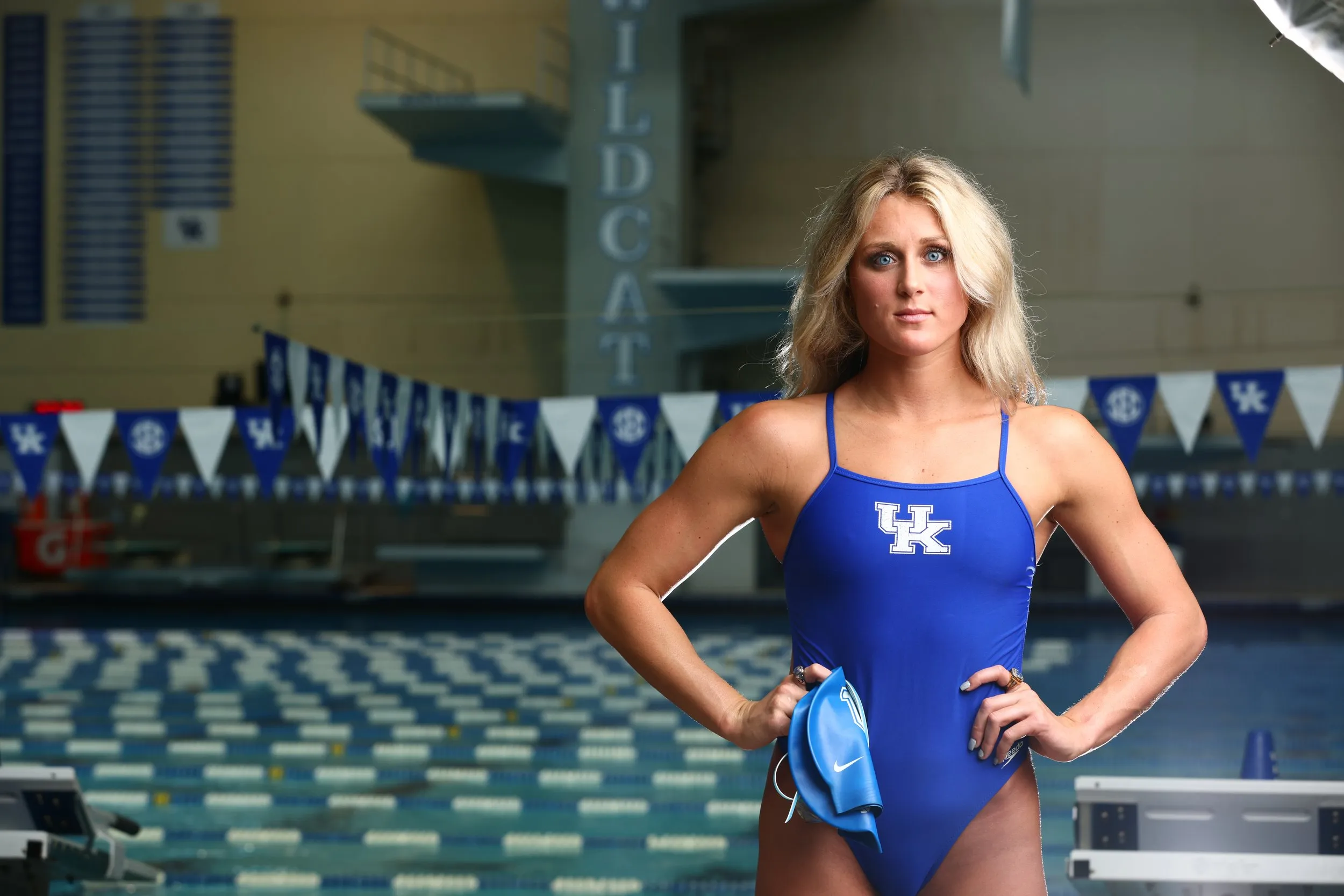
In a stunning and unexpected twist, former swimmer and outspoken advocate for fairness in women’s sports, Riley Gaines, has triumphed over soccer superstar Megan Rapinoe to claim the prestigious title of “Woman of the Year.” This surprising development has sent shockwaves across the internet, igniting heated discussions among fans, pundits, and the sports community about whether this marks the ultimate plot twist in the world of sports politics.
Both Gaines and Rapinoe are well-known for their bold personalities and passionate activism. They have been central figures in the ongoing debates surrounding gender equality, inclusivity, and women’s rights in sports. Riley Gaines captured national attention with her firm stance against the inclusion of transgender athletes in women’s sports, citing her controversial experience competing against Lia Thomas, a transgender swimmer. On the other hand, Megan Rapinoe has become a symbol of progressive activism, leveraging her platform to champion gender equality, LGBTQ+ rights, and social justice.
For months, Megan Rapinoe was considered the frontrunner for the “Woman of the Year” accolade. Her tireless advocacy, public visibility, and unwavering commitment to social change made her a favorite among those who support progressive causes. Her influence extended far beyond the soccer field, making her a household name synonymous with activism and equality. However, in a shocking upset, Riley Gaines was declared the winner, leaving many stunned.

Gaines’ victory is being hailed by some as a seismic shift in the conversation surrounding women’s sports. The contest for the “Woman of the Year” title was about more than athletic achievements; it was a battleground for competing ideologies on contentious social issues. Gaines, known for her fearless challenge to the narrative around transgender athletes in women’s sports, has garnered substantial support from conservative circles. Her outspoken views have made her a polarizing figure, but her win suggests that the tide may be turning in the debate over fairness versus inclusivity.
Supporters of Riley Gaines view her victory as a significant triumph for the integrity of women’s sports. They argue that her stance represents the concerns of many women who believe that allowing biological males to compete in female categories undermines the fairness and integrity of competitive sports. For them, Gaines’ win is a step toward preserving the sanctity of women’s sports and ensuring that female athletes have a level playing field.
Conversely, Megan Rapinoe’s supporters see this outcome as a setback for inclusivity and equality. They believe that sports should be open to all individuals, regardless of gender identity, and that Rapinoe’s efforts have been instrumental in pushing the boundaries of acceptance and social progress in athletics. For her fans, this loss feels like a disappointing blow to the progress made in advocating for inclusivity and LGBTQ+ rights.

The debate sparked by this unexpected result highlights the deep divisions in public opinion regarding gender, identity, and fairness in sports. The contest between Gaines and Rapinoe is more than a competition for an award—it’s a reflection of the broader cultural battle playing out in society. This debate has amplified the conversation around gender roles, athletic competition, and the balance between fairness and inclusivity.
Riley Gaines’ win raises important questions about the future of her advocacy and her role as a leading voice for traditional women’s rights in sports. Will her victory solidify her influence, or will it further polarize the already intense debates surrounding these issues? Meanwhile, Megan Rapinoe continues to be a prominent figure in the fight for LGBTQ+ rights and social justice. Despite this loss, her legacy as an activist and trailblazer remains intact, and she is likely to continue shaping the discourse from her perspective.

Ultimately, the “Woman of the Year” competition serves as a powerful reminder that women, regardless of their viewpoints on these contentious topics, are shaping the future of sports and society. Whether aligned with Gaines’ conservative views or Rapinoe’s progressive activism, both women have proven their ability to make a significant impact, sparking essential conversations about the direction of women’s sports and the broader cultural landscape.


